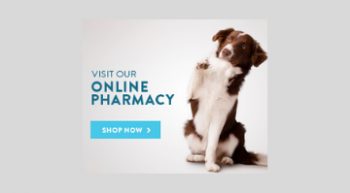It's National Pet Dental Health Month
The American Veterinary Medical Association declared February as National Pet Dental Health Month several years ago to underscore the importance of oral healthcare. Did you know that up to 80 percent of dogs and 70 percent of cats develop periodontal disease by the time they are three years old? This is alarming because untreated periodontal disease can cause infection by spreading to other areas of the body. It can also cause your pet to lose teeth, making it more difficult for him to chew food and get the nutrition he needs to remain healthy.
Preventing Dental Disease in Dogs and Cats
Proper brushing and regular dental exams are one key to your pet’s oral health. The other is providing her with nutritious, species-appropriate food. The best pet foods have little or no added fillers. Additionally, they contain enough meat and protein to provide energy. Dental chews for dogs can help reduce plaque and tartar, but you should not give one to your dog in place of regular brushing. The toothbrush and toothpaste you buy should also be species-specific.
To brush your pet’s teeth, have him sit in a relaxed position and then follow these steps:
- Massage the cheeks for several seconds
- Introduce toothpaste by placing a small dab on your finger or a treat and allow her to lick it off
- Place a small amount of toothpaste on a toothbrush and place in your pet’s mouth without brushing
- When your pet appears comfortable with the process, brush the surface of one tooth at a time
- Retract the lips so you can reach the back molars
- Concentrate on the upper and outer molars if your pet only tolerates brushing for a short time
- Gradually increase total brushing time from a few seconds to two minutes
Be sure to praise your pet for any cooperation that you get. Eventually, she will come to accept toothbrushing as part of the daily routine.
When to Schedule an Immediate Appointment
Please contact Noonday Veterinary Center right away if you notice any of these symptoms:
- Bleeding, red, or swollen gums
- Bad breath
- Drooling more than usual
- Hesitancy to eat
- Brown or yellow deposits on the teeth
These symptoms could indicate that your pet has an infection or another dental issue requiring prompt treatment.
Dr. Morris checks the condition of your pet’s teeth and gums at every preventive care appointment. He/she will recommend scheduling a follow-up appointment for any noted concerns.
